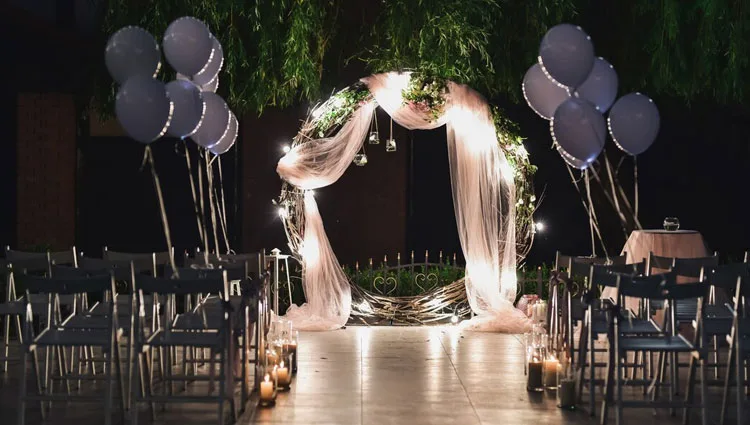Planning for a major life event is a significant undertaking that requires thoughtful consideration and meticulous organization. Whether it’s a wedding, a milestone birthday, a graduation, or another momentous occasion, careful planning can transform the event into a memorable and meaningful experience. In this comprehensive guide, we will explore the key steps and considerations to ensure that you approach the planning process with confidence and create a celebration that reflects the importance of the milestone.
The Pre-Planning Stage
Before delving into the details of planning, take a moment to reflect on the significance of the life event. Understand the emotions, achievements, or transitions associated with this milestone. Whether it’s the union of two lives in marriage, the culmination of years of education, or a celebration of a major personal achievement, grasping the importance of the event will guide your planning decisions.
Define the purpose of the party and establish specific goals. Are you aiming for an intimate and sentimental gathering, a grand and festive affair, or something in between? Understanding the purpose and goals will shape the overall atmosphere and direction of your planning efforts.
Creating Concrete Plans
One of the first practical steps in planning for a major life event is setting a realistic budget. Consider all potential expenses, including venue costs, catering, decorations, attire, entertainment, and any additional special touches. Establishing a budget early on will help you make decisions and make sure that you allocate resources appropriately.
Compile a comprehensive guest list that reflects the significance of the event. Consider the size of the venue, the formality of the occasion, and the preferences of the celebrant. Whether it’s an intimate gathering with close family and friends or a larger event that includes a broader circle, the guest list plays a crucial role in determining the overall scale and atmosphere of the celebration.
Choosing the right venue is an important decision in the planning process. The venue sets the stage for the entire event and should align with the purpose, theme, and guest list. Consider factors such as location, capacity, and available amenities. Whether it’s a picturesque outdoor setting, a formal banquet hall, or a cozy home, the venue should enhance the overall experience.
Adding the Details
While not every life event requires a specific theme, having one can add a cohesive and personalized touch to the celebration. Themes can be based on the individual’s interests, favorite colors, or the nature of the milestone. From elegant and classic to whimsical and creative, the theme sets the tone for decorations, attire, and overall aesthetics.
Transform the chosen venue into a visually stunning space with personalized decorations. Consider the chosen theme, color palette, and any meaningful elements associated with the celebrant. Incorporate personal touches such as photographs, mementos, or items that represent the journey leading up to the milestone. The decorations should evoke a sense of nostalgia and celebration.
Pay attention to practical details that contribute to the smooth execution of the event. Consider logistical aspects such as parking, accessibility, and accommodations for out-of-town guests. Ensure that there is a timeline for the event, including key moments like speeches, toasts, and any planned surprises. Organizing practical details in advance helps alleviate stress on the day of the event.
Food and Fun
Food plays a huge role in any celebration, so carefully coordinate catering and menu choices. Consider the preferences of the celebrant and guests, and dietary restrictions. Whether it’s a formal sit-down dinner, a buffet, or a themed menu, ensure that the culinary experience aligns with the overall atmosphere you wish to create.
Entertainment adds dynamism to the celebration and keeps guests engaged. Depending on the nature of the event, consider hiring live entertainment, a DJ, or organizing specific activities that resonate with the celebrant and attendees. From music and dancing to games or interactive elements, entertainment contributes to the overall enjoyment of the event.
As the organizer, it’s easy to get caught up in the logistics and details of the event. However, it’s crucial to be present and fully embrace the moment. Delegate responsibilities to trusted individuals so you can immerse yourself in the celebration alongside the guests. Allow yourself to experience the joy and significance of the life event.
Invites, Photos, and Thanks
Keep guests well-informed by communicating important details in advance. Wedding invitations and Basic Invite save the date cards, in particular, need to include essential information such as the date, time, venue, dress code, and any specific instructions. Clear communication ensures that guests are prepared and can fully participate in the celebration.
Hire a professional photographer to capture special moments throughout the celebration. Photographs and videos serve as lasting mementos, preserving the memories of the major life event. Consider additional touches, such as a guest book, where attendees can leave messages and well-wishes, to further capture the essence of the occasion.
After the celebration, take the time to express gratitude to those who contributed to the event. Thank guests for their attendance, acknowledge any gifts or well wishes, and express appreciation to anyone who played a role in planning or executing the event. Reflect on the meaningful moments and the overall success of the celebration.
Planning for a major life event involves a combination of thoughtful reflection, strategic decision-making, and attention to detail. By understanding the significance of the occasion, setting clear goals, and following a systematic approach, you can create a celebration that honors the individual or individuals involved and leaves a lasting impact. With careful planning and execution, your major life event will be a memorable and joyous occasion for all who attend.

